Olympia: Part One – Festival of the Nations is a Allemand film of genre Documentary directed by Leni Riefenstahl released in USA on 8 march 1940 with Leni Riefenstahl
Olympia: Part One – Festival of the Nations (1938)
Olympia

If you like this film, let us know!
- Infos
- Casting
- Technical infos
- Photos
- Videos
- Film quotes
- Characters
- Music
- Awards
Released in USA 8 march 1940
Length 3h21
Directed by Leni Riefenstahl
OriginGerman
Genres Documentary
Themes Politique, Sports films, Athletics films, Documentary films about sports, Films about the Olympic Games, Political films
Rating76%










Olympia is a 1938 German documentary film written, directed and produced by Leni Riefenstahl, documenting the 1936 Summer Olympics, held in the Olympic Stadium in Berlin, Germany. The film was released in two parts: Olympia 1. Teil — Fest der Völker (Festival of Nations) and Olympia 2. Teil — Fest der Schönheit (Festival of Beauty). It was the first documentary feature film of the Olympic Games ever made. Many advanced motion picture techniques, which later became industry standards but which were groundbreaking at the time, were employed —including unusual camera angles, smash cuts, extreme close-ups, placing tracking shot rails within the bleachers, and the like. The techniques employed are almost universally admired, but the film is controversial due to its political context. Nevertheless, the film appears on many lists of the greatest films of all-time, including Time magazine's "All-Time 100 Movies."
Olympia set the precedent for future films documenting and glorifying the Olympic Games, particularly the Summer Games. The 1936 Summer Olympics torch relay was devised by the German sports official Dr. Carl Diem for these Olympic Games in Berlin. Riefenstahl later staged the torch relay for this film, as with competitive events of the Games.
Synopsis
La première partie d'Olympia, un documentaire sur les Jeux olympiques de 1936 à Berlin, réalisé par la réalisatrice allemande Leni Riefenstahl. Le film a été projeté dans les salles en 1938 et à nouveau en 1952 après la chute du régime nazi.Actors
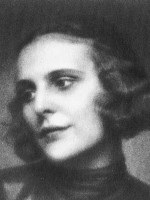
Leni Riefenstahl
(Nude Dancer - Prologue (uncredited))
Comments
Leave comment :
Suggestions of similar film to Olympia: Part One – Festival of the Nations
There are 0 films with the same actors, 7 films with the same director, 8965 with the same cinematographic genres, 11867 films with the same themes (including 0 films with the same 6 themes than Olympia: Part One – Festival of the Nations), to have finally 70 suggestions of similar films.If you liked Olympia: Part One – Festival of the Nations, you will probably like those similar films :

Triumph of the Will (1935)
, 1h54Directed by Leni Riefenstahl
Origin German
Genres Documentary, Historical
Themes Politique, Political films
Rating70%





The film begins with a prologue, the only commentary in the film. It consists of the following text, shown sequentially, against a grey background:

The Victory of Faith (1933)
, 1hDirected by Leni Riefenstahl
Origin German
Genres Documentary, Historical
Themes Politique, Political films
Rating62%





Like her Nazi propaganda films of 1935, the short Tag der Freiheit: Unsere Wehrmacht (Day of Freedom: Our Armed Forces) and the classic propaganda feature Triumph of the Will, Der Sieg des Glaubens documents a Nazi Party rally, the Fifth NSDAP Congress, in a straight chronological format. It has no voiceover or commentary. The activities captured include the welcoming of foreign diplomats and other party members and politicians – such as Franz von Papen – at the Nuremberg train station; Adolf Hitler's arrival at the airport and his meeting with important party members such as Josef Goebbles and Hermann Göring; massive Sturmabteilung (SA, colloquially known as "Brownshirts") parades; and Hitler's speech on the assumption of power by the party, and the tenth anniversary of the German National Socialist movement.
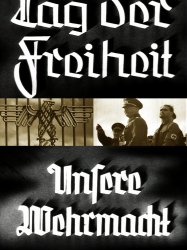
Day of Freedom (1935)
, 28minutesDirected by Leni Riefenstahl
Genres Documentary
Themes Politique, Documentary films about war, Documentary films about historical events, Political films
Rating61%





The film depicts a mock battle staged by German troops during the ceremonies at Nuremberg on German Armed Forces Day 1935. The camera follows the soldiers from their early-morning preparations in their tent city as they march singing to the vast parade grounds where a miniature war involving infantry, cavalry, aircraft, flak guns and the first public appearance of Germany's new forbidden tank is presented before Hitler and thousands of spectators.
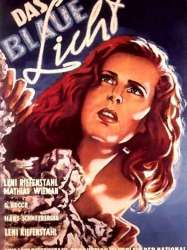
The Blue Light (1932)
, 1h26Directed by Leni Riefenstahl, Carl Mayer, Béla Balázs
Genres Drama, Fantasy, Adventure
Themes Sports films
Actors Leni Riefenstahl, Mathias Wieman, Béla Balázs
Rating67%





A young woman, Junta (Riefenstahl), lives apart from her village and, for her solitude and strangeness, is considered to be a witch; when she comes to the village for one reason or another, the townsfolk chase her away. They feel that she may in some way be responsible for the deaths of several young men of the village, who have felt compelled, one by one, to climb the local mountain (and fall to their deaths) on nights when the moon is full.
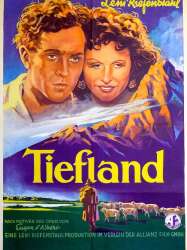
Lowlands (1954)
, 1h38Directed by Leni Riefenstahl, Harald Reinl
Genres Drama
Themes Films about music and musicians, Sports films, Musical films, Films based on plays, Films based on operas
Actors Bernhard Theodor Henry Minetti, Leni Riefenstahl, Aribert Wäscher, Maria Koppenhöfer, Frida Richard
Rating62%





Pedro, a shepherd, is sleeping in his Pyrenean mountain hut when his herd is attacked by a lone wolf. He awakens to defend his sheep, and strangles the wolf. In the Catalan lowlands (northeastern Spain), the construction of a canal is completed and diverts water from the farms and fields of the peasants to support the prized bulls of the landowner, Don Sebastian, marquis of Roccabruno. The request of the peasants for water is arrogantly rejected. He has, however, significant debts and needs money. The rich Amelia plans to marry him, but he offends her.
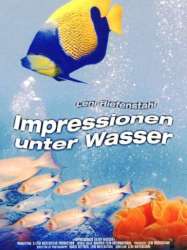
Underwater Impressions (2002)
, 45minutesDirected by Leni Riefenstahl
Origin German
Genres Documentary
Themes Environmental films, Seafaring films, Transport films, Documentary films about environmental issues, Documentary films about nature
Actors Leni Riefenstahl
Rating71%





The marine-based documentary was mainly shot around Papua New Guinea, and is a collection of footage directed by Riefenstahl between the 1970s and 2000. Other film locations included the Maldive Islands the Seychelles, Kenya, Tanzania, Indonesia, the Red Sea, the Cocos Islands (Pacific) and the Caribbean Sea (Cuba). Riefenstahl dismissed claims that the film was a comeback; "Impressionen Unterwasser certainly isn't a 'comeback'. I was always active and continue to be so. My film shows the beauty of the underwater world. I hope it will touch the viewer's conscience as it illustrates just what the world will lose when nothing is done to stop the destruction of our oceans. I once said that I am fascinated by the beautiful and the living. I seek harmony and, under water, I have found it.
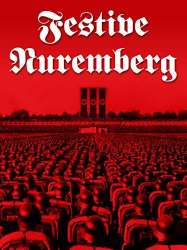
Festive Nuremberg (1937)
, 21minutesDirected by Leni Riefenstahl
Genres Documentary
Rating61%





The film runs in colour for only 21 minutes (although the downloadable version at the Internet archive is monochrome only and has no English translation of the little commentary that exists), containing footage of the 8th and 9th Nuremberg Rallies. Particularly notable scenes of both the rally and the film are images of Albert Speer's lighting techniques during the 9th Nuremberg rally on 10 September 1937, in which he positioned 134 searchlights circling the Zeppelin field on which the rally was taking place. The beams of these spotlights, forming the "cathedral of light", merged into the general glow at an estimated height of 20,000 feet, and would be used for more practical purposes after war was declared in 1939.

One Day in September (1999)
, 1h31Directed by Kevin Macdonald
Origin Suisse
Genres Documentary, Historical
Themes Sports films, Films about terrorism, Documentary films about sports, Films about the Olympic Games, Documentary films about law, Documentary films about war, Documentary films about historical events, Documentary films about politics, Documentary films about terrorism, Political films
Actors Michael Douglas, Peter Jennings
Rating77%





1972. Jeux olympiques de Munich. 121 nations, 7 123 athlètes. Pour la première fois, les chaînes de télévision du monde entier sont là pour retransmettre l'évènement.

Directed by Jules Falardeau
Origin Quebec
Genres Documentary
Themes Politique, Sports films, Boxing films, Documentary films about sports, Documentaire sur une personnalité, Documentary films about politics, Political films, Le boxe anglaise, Documentary films about Quebec politics
À travers une rencontre intimiste supportée de séquences vidéo et d'images d'archives, le document nous présente le rôle marquant de ce chevalier de l'indépendance dans l'évolution du mouvement indépendantiste au Québec des années 1960.
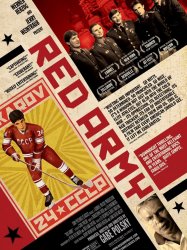
Red Army (2014)
, 1h25Origin USA
Genres Documentary, Historical
Themes Sports films, Documentary films about sports, Ice hockey films, Documentary films about war, Documentary films about historical events, Documentary films about politics, Political films, Sports d'hiver
Rating75%





Dans une première partie Red Army traite du recrutement et de la formation des joueurs professionnels de hockey sur glace durant l'ère soviétique. Puis il suit l'histoire de l'équipe nationale dans les années 1980 à travers le parcours des cinq joueurs vedettes de l'époque avec une emphase sur la carrière de Viatcheslav Fetissov le joueur le plus célèbre de cette formation. Tous ces joueurs faisaient partie du club Armée Rouge de Moscou rattaché à l'Armée soviétique. Les thèmes traités dans le documentaire portent sur le poids de la propagande soviétique, le caractère dictatorial des entraineurs mais également sur la finesse du jeu des joueurs soviétiques. Enfin, à travers le destin des joueurs vedettes, il montre les conséquences de la Pérestroïka et de l'éclatement de l'Union soviétique sur le sport professionnel soviétique.
 Connection
Connection